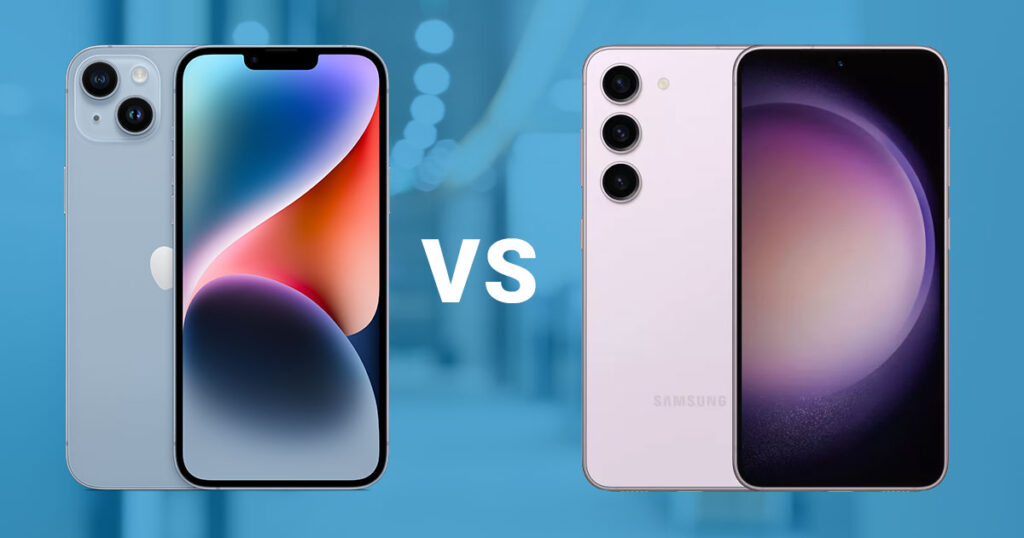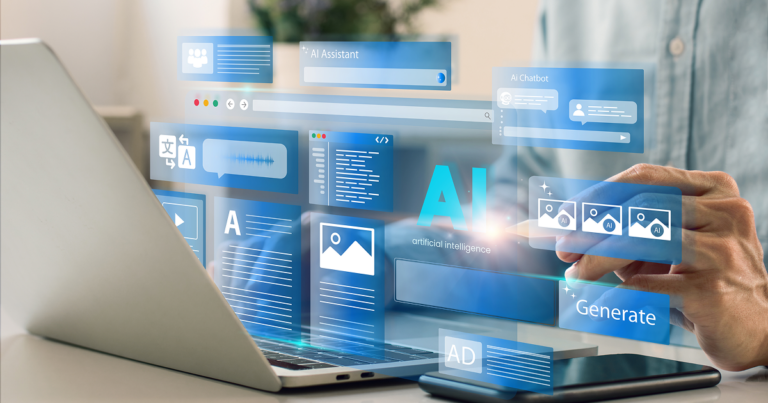Before joining the iPhone or Android camp for business use, management should first consider factors for compatibility, ease of use and security. Smartphones are powerful work tools and when combined with a business wireless plan, everyone experiences better connectivity and increased flexibility in the office and out in the field. A professional who can schedule meetings, reply to emails and review files on the go can be productive from anywhere, but doing this requires the right technology. When choosing between iPhones vs. Android for a business, consider:
- Compatibility with other technology
- Available apps
- Ease of setup
- Hardware options
- Security features
Compatibility Across Devices
If a business is already enmeshed in one brand of technology, it makes sense to stick with that same system for its corporate smartphones. For those who already use Mac computers, the iPhone Operating System (iOS) integrates seamlessly, so staff in the field who need to transfer files or work on programs remotely can do so without a second thought. Although Android devices are the best choice when seeking smartphones that work with Windows PCs and tablets, the vast range of hardware options can make compatibility unpredictable and less straightforward compared to Apple products.
Google Play vs. App Store
The Android app store, Google Play, offers far more choices than Apple’s App Store. A company that needs a specific program might have more luck finding it for Android devices than for iPhones. The limited selection in the App Store is due to its tough review process and high standards, which results in fewer low-quality apps for employees to vet before choosing a solution. Both Android and iPhone offer professional solutions for companies to manage contacts, edit or sign documents and run any preferred email platform.
Apple Setup vs. Android
Setting up Apple devices is seamless for businesses, which is a big benefit when corporate-issued smartphones are upgraded or swapped. Each employee is assigned a unique Apple ID that can be used to transfer everything, including work contacts, calendar meetings and system settings, from one iPhone to another. This allows IT to dispatch new devices quickly and configure company-wide settings without having to personally update each individual iPhone. Setup is also simpler on iPhones than on Androids because Apple devices have limited customization options. While iPhones’ static appearance is user-friendly, it can fall short for “power users” who want full control over their devices. Employees who wish to change the appearance, shortcut buttons, widget placement and default apps on their smartphone will prefer Android devices, even though the initial setup is less automated.
Smartphone Hardware
Almost all smartphones have drop protection, reinforced glass and sturdy construction, so companies will not need to consider durability as much as in previous years. Two areas where Android hardware exceeds iPhone are ease of swapping the battery and upgrading memory by adding an SD card. There is also a wider selection of Android smartphones to choose from compared to iPhones. Companies who have time to research and handpick Androids for their staff appreciate the range of manufacturers and device styles. Though iPhone selection is limited, this simplifies the decision process for businesses, especially since any mid-range iPhone is robust enough to use company-wide.
Security of iPhones vs. Androids
Similar to how strong network security can help prevent cyberattacks on businesses, a secure corporate-issued phone can also protect proprietary information and business data from ending up in the wrong hands. Apple is known for its strict security measures that control its hardware, firmware and software plus it rigorously screens apps in its App Store for red flags. Compared to Android, Apple offers better support for legacy devices so older models still receive firmware and security updates years after release. Android upgrades are less streamlined than Apple, but a recent switch to automatic updates has helped patch security gaps. Device unlocking is comparable between iPhones and Androids as both offer biometric sensors (fingerprint readers or face scanners) to prevent anyone from physically accessing the devices.
Can I Use an iPhone for Business?
iPhones are certainly not only for personal use as the powerful processors can run many business-related programs and the tight device security helps keep company data safe plus an employee can swap between multiple Apple devices seamlessly.
Is Android or iPhone Better for Businesses?
Deciding whether Androids or iPhones are better for businesses depends on what a company wants to gain from dispatching smartphones to its employees. Businesses looking for straightforward work tools that provide consistent experiences across many Apple devices find iPhones to be the best smartphones for their workforce. But corporations that appreciate a variety of cost-effective hardware options with customization capabilities find Android smartphones are the best fit.
When you are ready to experience the advantages of a business mobile plan, get started at ftc.net/business/services/wireless. Select from our full lineup of smartphones and tablets to find the right tools to connect your employees and level-up your productivity.




